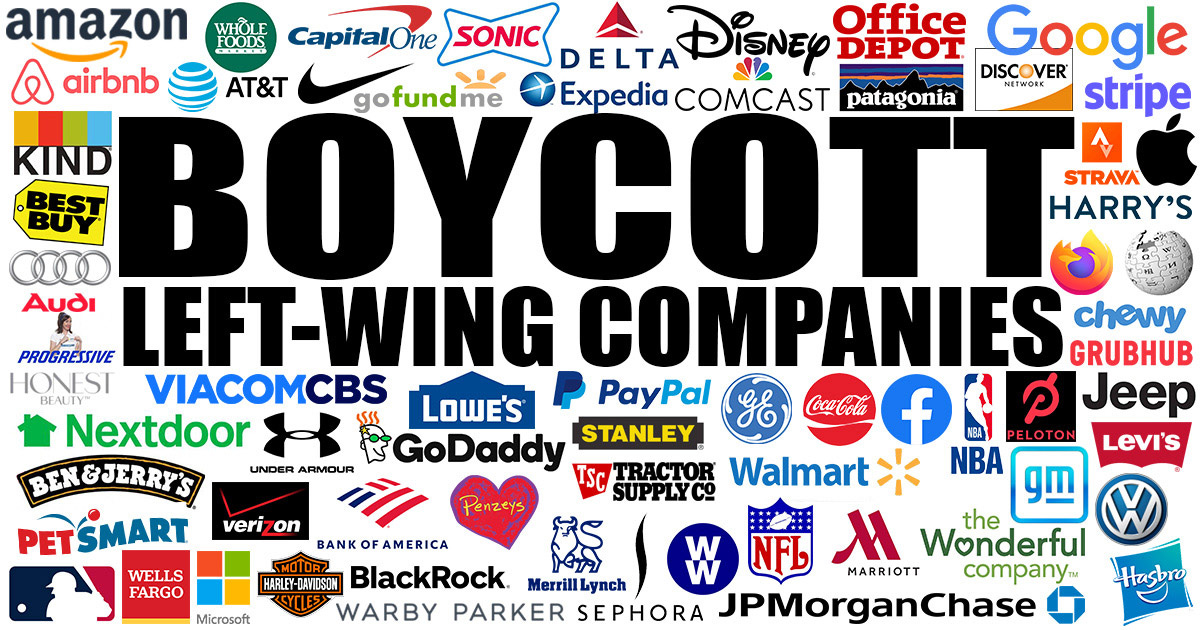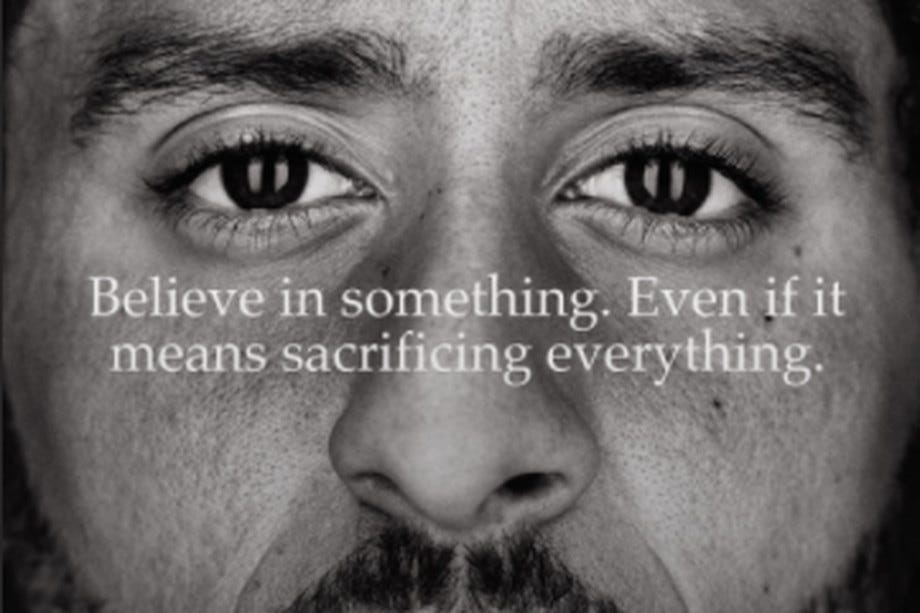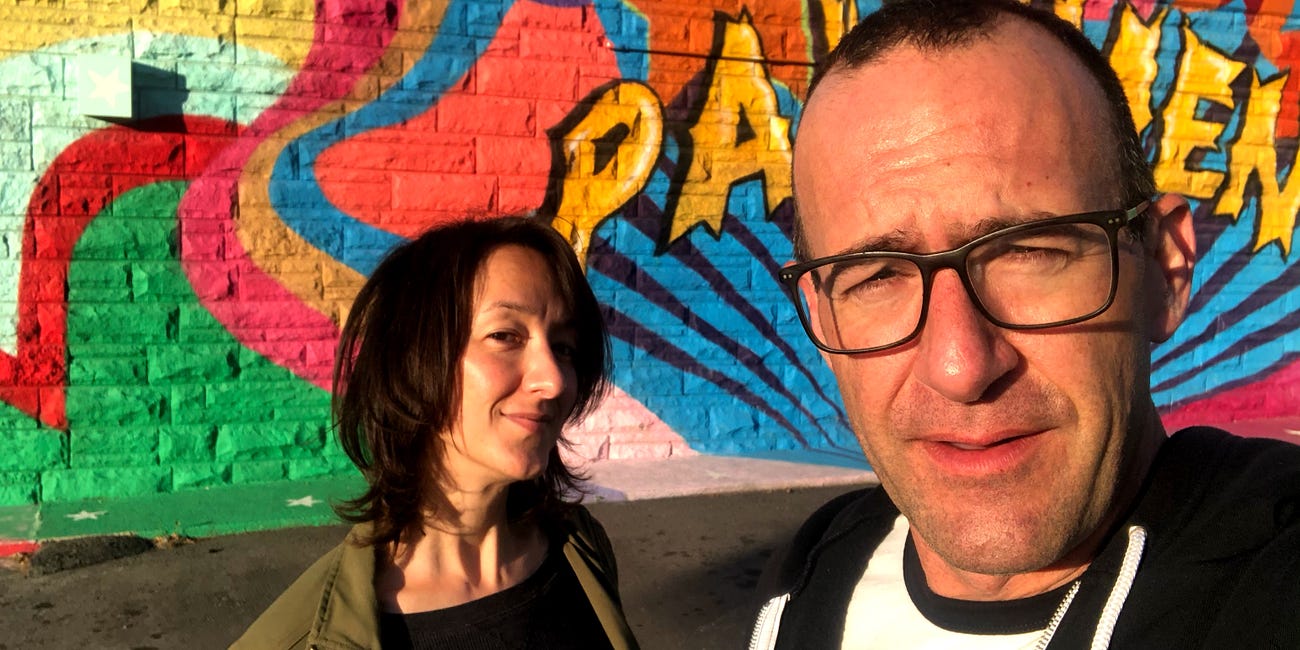You're Wrong About "Woke Corporations"
Did you really think capitalism was putting politics ahead of profits?
In 1970, three important things happened. I was born, the Baltimore Orioles won the World Series, and American economist Milton Friedman would create the dominant business theory that held that “an entity's greatest responsibility lies in the satisfaction of the shareholders.” The reasoning behind what came to be known as “shareholder capitalism” was that corporations owed their responsibility to shareholders only, leaving the good of the people to churches, politics, and fate.
But it became harder and harder to get by, whether you were a middle-class striver like me or just trying to make it month to month. People my age still had muscle memory from when the system worked, but millennials only knew life on a dying planet where if you didn’t die in a school shooting you had to work the rest of your life paying off college debt. Late-stage capitalism gave way to late-stage democracy after Donald Trump’s election. The kids were looking up at the adults, asking if we were going to fix this mess, and a lot of us, me included, told them that things will get better.
“…focus on the needs of our clients, employees and communities.”
Then, in January 2018, everything changed. That’s when Larry Fink sent his annual letter to his shareholders. This might mean nothing to you just as it meant nothing to me then, but because his company has $9 trillion in assets under management, Larry Fink is the most powerful man on Wall Street. If Blackrock were a country, it would have the third-largest economy in the world, and no, I don’t really know what having assets under management means, but his annual letter isn’t just read. CEOs study it like the back of a baseball card.
Fink’s 2018 letter ended the era when a company was only responsible to its bottom line and kicked off the era of “shareholder capitalism.”
“I can’t think of a time when it’s been more important to live our principles, stay true to our purpose, and focus on the needs of our clients, employees and communities,” he wrote. “And if we do our job well, our shareholders will be the biggest beneficiaries of our approach.”
Do you know what this means? I have outlived the Friedman Doctrine, and so have we all. So if we get nothing out of this essay, take that win.
Fink was not alone in assigning corporations a role in fixing the world. The following year, the Business Roundtable — a group of about 200 leftist radical CEOs such as Apple’s Tim Cook, JPMorgan Chase & Co.’s Jamie Dimon, and General Motors’ Mary Barra — sent out their own letter redefining their role in creating “an economy that serves all Americans.”
‘An Economy That Serves All Americans’
“The American dream is alive, but fraying,” said Dimon. “Major employers are investing in their workers and communities because they know it is the only way to be successful over the long term.”
Things came fast and furious after that because, well, everything was moving so fast, and everyone was so furious, and corporations were speaking out on issues where it seemed strange. Joining the Black Lives Matter movement, Dimon took a knee with bank employees, and McDonald’s proclaimed that George Floyd was “one of us.” Business held roundtables on #metoo. Pride became a “branded holiday.” And after January 6, the National Association of Manufacturers publicly suggested that Vice President Mike Pence invoke the 25th Amendment.
If you were a liberal or even a mainstream conservative, it all looked so… strange, performative even. McDonald’s makes hamburgers, not progress. And Jamie Dimon is Jamie Freaking Dimon, for crying out loud. Who’s gonna believe that corporations got woke? They were just trying to hop the trend to sell more hamburgers and get unearned praise.
“The American dream is alive, but fraying.”
Ross Douthat, that’s who. A New York Times’ columnist whose chief virtue is that he is not David Brooks, Douthat actually coined the term “woke capital” in a 2018 column in which he took a different view of the elephant. Corporations were just trying to do whatever it took for politicians to leave business alone to continue their rapacious ways.
Actual conservatives of the Trumpy reactionary bent, however, took from Douthat’s column only the woke moniker and setting the rest of his writing on fire, which now that you mention it is not the worst use of a Times column. Down in Texas, oil and gas companies weren’t getting bank loans, and older white executives were getting canceled. This had nothing to do with oil prices going negative in 2020 or the actual legal exposure of continuing to ignore sexual harassment complaints. It was all this woke business, they said, and they asked their buddies in the Texas legislature to do something about it.
In 2021, Rep. Jason Isaac passed a bill to forbid state pension funds from investing in financial companies (read: Larry Fink’s Blackrock and a bunch of European companies) that didn’t invest in oil and gas companies. Several states copied and pasted Isaac’s bill into their state lawbooks. And now Sen. Bryan Hughes has a bill with a chance to become law that would prohibit state pensions from investing in Environmental, Sustainability, and Governance funds, commonly called ESG.
“If they’re gonna mess with money that belongs to Texas retirees, we’re gonna teach them some manners.”
“If they’re gonna mess with money that belongs to Texas retirees, we’re gonna teach them some manners,” he recently said to a policy conference in what passes for wit among some.
To the rest of us, the blowback against woke capitalism is an endless series of reactions against a trans influencer touting diet beer and other manner of corporate sins against the perceived regular order. There’s a “parallel economy” that offers reactionary alternatives to YouTube (Rumble), Starbucks (Black Rifle Coffee), and PayPal (Parallel Economy, really). And after his 2018 book Woke, Inc. became a New York Times bestseller (like that’s hard), Vivek Ramaswamy is running for president with a different take on corporate purpose.
“We are hungry for purpose and meaning in our national history when the things that used to fill that void—faith, patriotism, hard work, family—have disappeared from modern American life,” he said. “We instead replace that with wokeism, transgenderism, climatism, and COVID-ism.”
“When do the human rights tribunals begin for Larry Fink?”
“When do the human rights tribunals begin for Larry Fink?” asked Isaac at that same policy conference, where he also called Fink an “enemy of the state.”
The backlash seems to be working. In 2020, $17.1 trillion in assets had been invested with ESG factors, up from $2.5 trillion a decade earlier. By 2022, ESG investments were down by more than half from their high to $8.41 trillion.
So, was woke capitalism really just a house of straw so easily blown away with a bit of huffing and puffing?
Actually, no. Jamie Dimon didn’t just take a knee. J.P. Morgan Chase also donated $1 billion to racial justice causes. In all, American corporations made $50 billion in promises in the wake of George Floyd’s murder. The #metoo movement caused a sea change in corporate America in the understanding of business risk. And Ford Motor Company is redefining “tough” with its new rainbow-colored VGR Raptor Truck, which stands for Very Gay Raptor.
What separates perception and reality here are the two stakeholder groups completely ignored by the anti-wokists: employees and customers.
A survey out from USC and Weber Shandwick this week found nine out of 10 investors and seven out of 10 consumers and employees believe businesses “have a responsibility to play a role in addressing societal problems.” The majority of all three groups agreed ESG ratings were useful in making investing and buying decisions, or when taking a new job.
Remember those millennials who were getting screwed with their pants on before? Now they’re the bulk of the workforce and the customer base, followed closely behind by Gen Z. Together, they are the two largest, most diverse generations in U.S. history, raised by Sandies Hurricane and Hook and bequeathed a country in which higher education is unaffordable and the American Dream is out of reach. Their only power to effect change to make this country better is where they work and where they buy avocado toast.
But none of this matters if Fink isn’t right that “profits and purpose are inextricably linked,” and here I have good news. A 2020 World Economic Forum study found “a link between responsible leadership and higher financial performance.”
“Profits and purpose are inextricably linked.”
Here’s a surprising example: Let’s compare the three most-held 401k plans (including Fink’s Blackrock) to one ESG fund called Natixis. Natixis beats the others on ESG factors including fossil fuels, deforestation, private prisons, gender, and weapons. It also outperforms each of those three financially over the last five years. Over the same period, a fund that invests “in companies that align with your Republican political beliefs” trading under the ticker symbol (of course) MAGA rose 33%, well short of the S&P 500’s 51% increase.
Scoreboard, dorks. Turns out all this woke business is aligned with business principals, and the real political distraction is coming from the Trumpy right. If you want to be able to hire workers and get customers — that is, make money — you’re going to have to put some sincere effort into making this world look more like what the kids were promised all along. Who knows, maybe the Orioles will win the World Series again?
Long live shareholder capitalism.
Jason Stanford is the co-author of NYT-best selling Forget the Alamo: The Rise and Fall of an American Myth. His bylines have appeared in the Washington Post, Time, and Texas Monthly, among others. Follow him on Twitter @JasStanford.
Further Reading
We set up a merch table in the back where you can get T-shirts, coffee mugs, and even tote bags now. Show the world that you’re part of The Experiment.
We’ve also got a tip jar, and I promise to waste every cent you give me on having fun, because writing this newsletter for you is how I have fun.
Buy the book Texas Lt. Gov. Dan Patrick banned from the Bullock Texas History Museum: Forget the Alamo: The Rise and Fall of the American Myth by Bryan Burrough, Chris Tomlinson, and myself is out from Penguin Random House. The New York Times bestseller is 44% off and the same price as a paperback now!








Things are clearly broken when people who drink Bud Light think the company who makes it is some woke, social justice train when it has been selling human beings putrid canned water for decades.